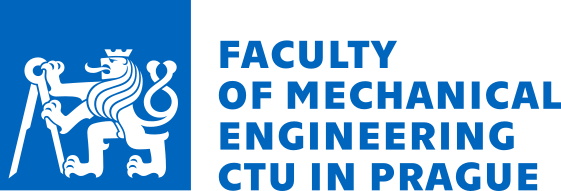User: unknown || Login || NEWS: Updated pdfs, Photos, Evaluation, Recordings!, Slides, Bonus lectures, Free Lifing license!, FABER funded
WCFA'24 - Fatigue Crack Growth
Programme of the Workshop
In previous volumes of the WCFA workshop, we usually dedicated the first day to onboarding newcomers - engineers who were not educated in fatigue analysis or who had forgotten everything while practicing in other engineering domains. We decided to skip this one-day course this year to make the rest of the lectures over 2.5 days more manageable. If you miss the introductory course Introduction to Fatigue, it can be accessed online from previous recordings, either from the Vibration Fatigue Analysis workshop in 2022 or the FKM-Guideline Non-Linear workshop in 2023.
To better meet the needs of participants and their level of fatigue knowledge, several variants of the course are provided:
| Wednesday December 4, 2024 (6 hours of lectures) |
D. Quaranta: Damage Tolerance, Fracture Mechanics and Crack Growth in Aerospace Industry | V1 | V3 |
| Thursday December 5, 2024 (6 hours of lectures) |
K. Rother: FKM Guideline on Fracture Mechanics | V2 | |
| Friday December 6, 2024 (3 hours of lectures) |
K. Rother: FKM Guideline on Fracture Mechanics |
Topics discussed in individual days follow.
Damage Tolerance, Fracture Mechanics and Crack Growth in Aerospace Industry
This part is covered in the following variants: Introduction to Fatigue (V1), Complete Course (V3).
| Wednesday, December 4, 2024 | ||
| 8:00-8:50 | Registration | |
| 8:50-9:00 | Jan Papuga | Welcome info |
| 9:00-10:30 | Domenico Quaranta | Part 1: Damage Tolerant (DT) design Fatigue Cracks in Metals Fatigue Design Criteria
|
| 10:30-11:00 | Coffee break | |
| 11:00-12:30 | Domenico Quaranta | Part 2: Linear Elastic Fracture Mechanics (LEFM) Stress Intensity Factors (SIF) LEFM limits of validity SIFs derivation/calculation methods
|
| 12:30-13:30 | Lunch | |
| 13:30-15:00 | Domenico Quaranta | Part 3: Crack Growth (CG) Models da/dN models
|
| 15:00-15:30 | Coffee break | |
| 15:30-17:00 | Domenico Quaranta | Part 4: DT Special Topics Retardation effect Inspection intervals Continuing damage approach
Cold working and interferce fit effects Testing DT designed structures and loads derivation |
FKM Guideline on Fracture Mechanics
This part is included V2 (FKM Guideline only) and V3 (whole content). It covers the whole day on Thursday December 5 (concluding with the Social Evening) and the morning session of Friday December 6.
| Thursday, December 5, 2024 | ||
| 8:30-8:50 | Registration | |
| 8:50-9:00 | Jan Papuga | Welcome info |
| 9:00-10:30 | Klemens Rother | Introductory Remarks Background information and overview of the guideline Basics on fracture mechanical concepts Linear elastic vs. elastic-plastic fracture mechanics Failure assessment diagrams Static vs. cyclic loading Assessment concept of the guideline |
| 10:30-11:00 | Coffee break | |
| 11:00-12:30 | Klemens Rother | Input Quantities And Modelling Defects Stress state Material properties |
| 12:30-13:30 | Lunch | |
| 13:30-15:00 | Klemens Rother | Computational Procedures Static loading Cyclic loading |
| 15:00-15:30 | Coffee break | |
| 15:30-17:00 | Klemens Rother | Advanced Topics Mixed Mode Loading Dynamic Loading Stress corrosion cracking SCC Probabilistic calculation Software |
| 19:30-??? | Social evening | |
| Friday, December 6, 2024 | ||
| 9:00-10:30 | Klemens Rother | Proof Concept Safety margins and reserve factors, sensitivity analysis, probabilistic analysis Applications I |
| 10:30-11:00 | Coffee break | |
| 11:00-12:30 | Klemens Rother | Applications II |
| 12:30-13:30 | Lunch | |
Timetables of past volumes
- WCFA'23 & FKM-NL
- WCFA'22 & VFA
- WCFA'19 & PHL
- WCFA'18 & FKM
- WCFA'17 & DFW
- WCFA'16 & VFA
- WCFA'13 & PUM05
- WCFA'11 & PUM04
- WCFA'09 & PUM03
- WCFA'08 & PUM02
papuga@pragtic.com, last update: January 9, 2025
EXTERN LINKS:
























